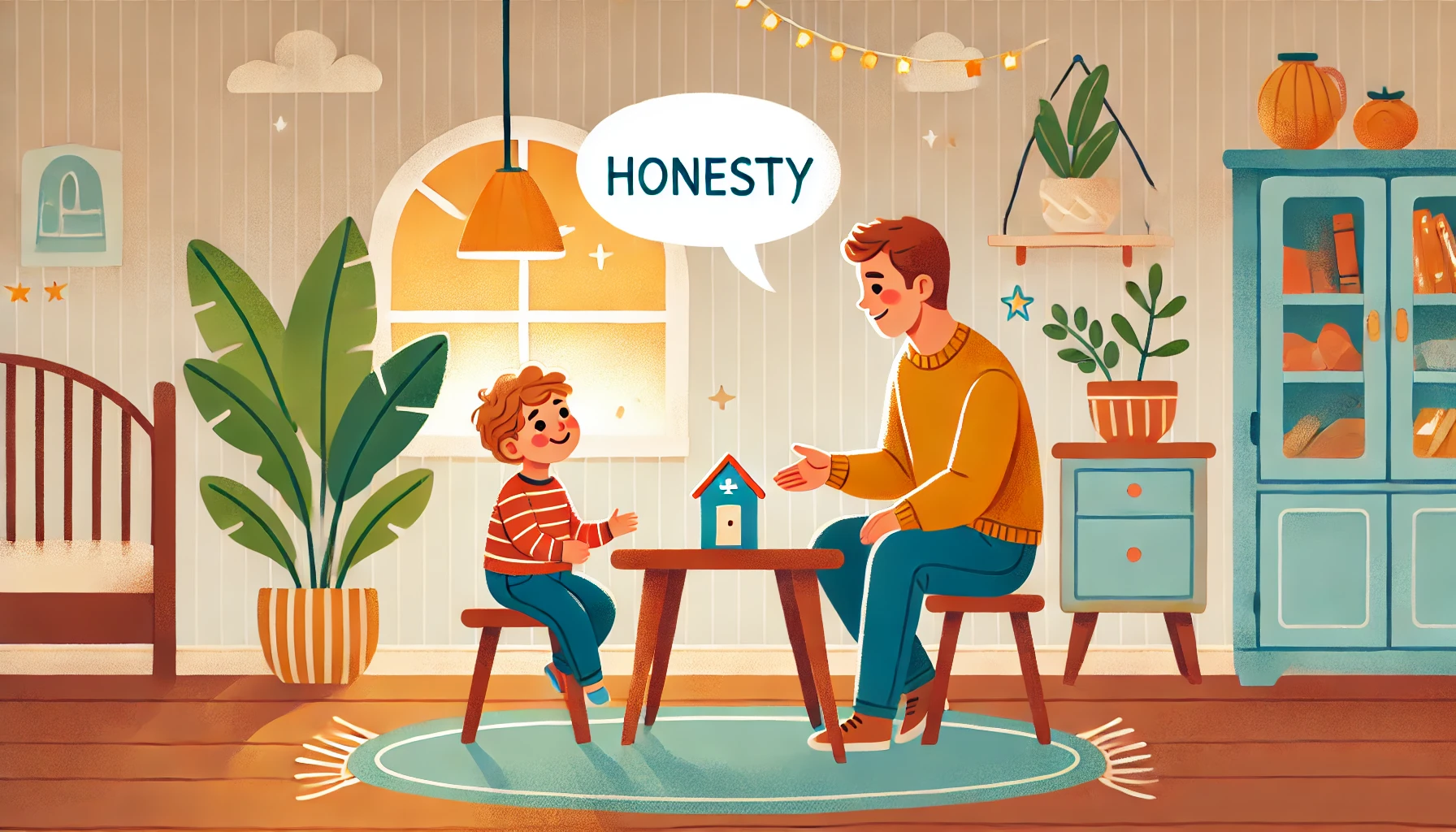How to Teach Young Children About Honesty at Home
Honesty is a fundamental value that helps children build trust, integrity, and strong relationships. Teaching young children to be truthful from an early age encourages responsibility, ethical decision-making, and confidence in their words. Parents play a key role in fostering honesty through guidance, role-modeling, and positive reinforcement. In this article, we’ll explore effective ways to teach honesty at home.
Why Teaching Honesty is Important
- Builds trust and strong relationships – Encourages open communication.
- Develops accountability – Helps children take responsibility for their actions.
- Encourages ethical decision-making – Teaches the importance of truthfulness.
- Reduces fear of mistakes – Helps children understand that honesty is valued over perfection.
- Strengthens self-confidence – Encourages children to speak truthfully without fear.
1. Model Honesty in Everyday Life
Children learn honesty by observing how adults handle the truth.
Activity Idea:
- Admit small mistakes in front of your child: “I forgot to buy milk today. I’ll fix it tomorrow.”
- Avoid lying, even in small situations (e.g., telling a fake excuse for missing an event).
- Be honest about feelings and situations, using age-appropriate language.
What Kids Learn:
- The importance of truthfulness in everyday life
- That everyone makes mistakes and can correct them
- How to communicate openly and honestly
2. Praise and Reinforce Truthful Behavior
Encouraging honesty with positive reinforcement helps children feel safe being truthful.
Activity Idea:
- When a child tells the truth, say, “I’m proud of you for being honest.”
- Use a “truth jar” where children add a sticker when they tell the truth in a difficult situation.
- Show appreciation: “Thank you for telling me the truth, even though it was hard.”
What Kids Learn:
- That honesty is valued and appreciated
- Confidence in telling the truth
- That telling the truth leads to positive outcomes
3. Read Books About Honesty
Stories help children understand the value of truthfulness through relatable characters.
Activity Idea:
- Read books like The Boy Who Cried Wolf and discuss the consequences of lying.
- After reading, ask, “What happened when the character wasn’t honest?”
- Encourage children to share times when they told the truth, even when it was difficult.
What Kids Learn:
- The impact of honesty on trust and relationships
- How lying can create problems
- The benefits of being truthful
4. Create a Safe Space for Truthfulness
Children are more likely to be honest when they feel safe from harsh punishment.
Activity Idea:
- Instead of reacting angrily to mistakes, say, “I appreciate you telling me the truth. Let’s find a way to fix this together.”
- If a child lies, calmly discuss why honesty is important and how they can correct the situation.
- Encourage open conversations by asking, “Is there anything you want to tell me? I’ll always listen.”
What Kids Learn:
- That telling the truth is safe and supported
- How to be accountable for mistakes without fear
- That honesty strengthens relationships
5. Use Role-Playing to Teach Honesty
Practicing honesty in imaginary situations helps children develop integrity.
Activity Idea:
- Act out scenarios where a character makes a mistake and must decide whether to tell the truth.
- Discuss how telling the truth helps resolve problems more easily.
- Let children play the role of a parent or teacher to practice guiding honesty.
What Kids Learn:
- How honesty applies to real-life situations
- The emotions involved in truth-telling
- The benefits of making the right choice
6. Teach the Consequences of Dishonesty
Helping children understand the impact of lying encourages ethical choices.
Activity Idea:
- If a child lies, calmly ask, “What do you think happens when someone doesn’t tell the truth?”
- Use simple examples, like, “If I told you we were going to the park but never took you, how would you feel?”
- Discuss how honesty builds trust while lying can break it.
What Kids Learn:
- How dishonesty affects relationships
- Why truthfulness is always the best choice
- How to take responsibility for mistakes
7. Encourage Problem-Solving Instead of Covering Up Mistakes
Teaching children to solve problems instead of lying helps build accountability.
Activity Idea:
- If a child spills something, guide them to clean it up rather than hide it.
- Encourage problem-solving by asking, “How can we fix this mistake together?”
- Show that mistakes are part of learning, not something to be afraid of.
What Kids Learn:
- That mistakes are normal and fixable
- How to be honest even in difficult situations
- Problem-solving and accountability skills
8. Be Patient and Consistent
Honesty is a lifelong habit that requires practice and reinforcement.
Activity Idea:
- Gently correct dishonest behavior without harsh punishment.
- Reinforce that telling the truth is always the right choice.
- Celebrate when children show honesty in everyday situations.
What Kids Learn:
- That honesty is always valued
- How to be truthful without fear
- The long-term benefits of integrity
Final Thoughts
Teaching honesty at home helps children develop trust, responsibility, and strong moral values. By modeling honesty, reinforcing truthfulness, and creating a safe space for open communication, parents can guide children toward making ethical and responsible choices throughout their lives.
